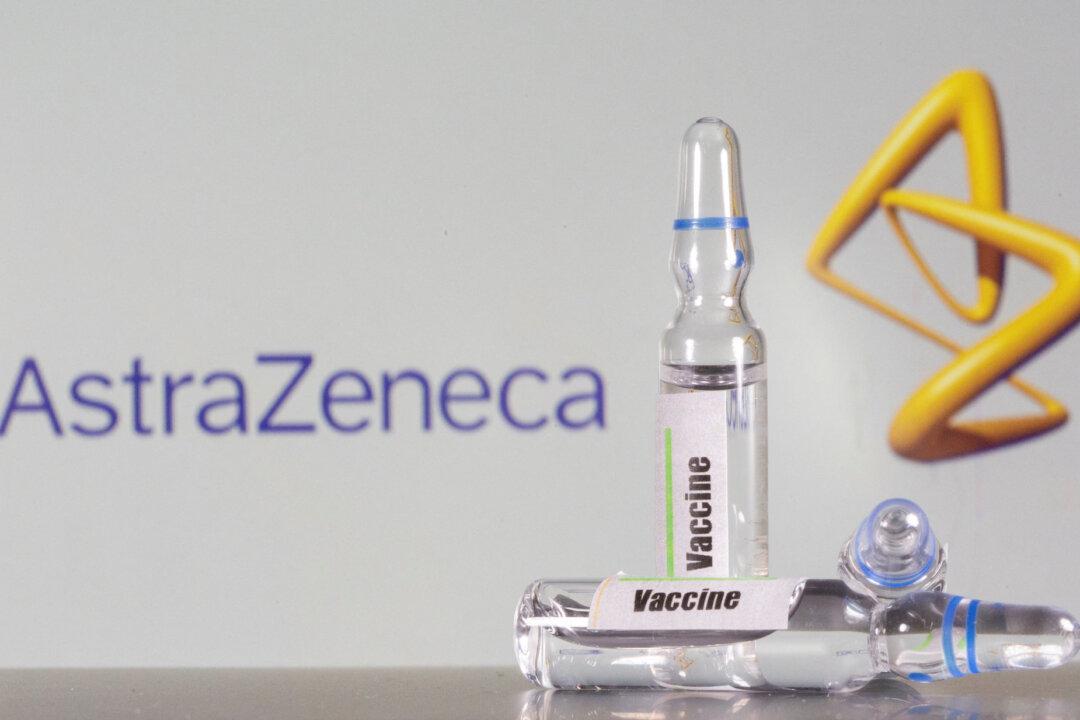AstraZeneca said its COVID-19 vaccine, called Vaxzevria, generated an antibody response against Omicron when given as a third booster dose to individuals who were earlier inoculated with either AstraZeneca’s shot or an mRNA jab.
Citing preliminary data from an ongoing clinical trial, AstraZeneca said in a Jan. 13 statement that its COVID-19 vaccine generated an increased immune response against a number of variants, including Delta and the highly mutated Omicron strain.





